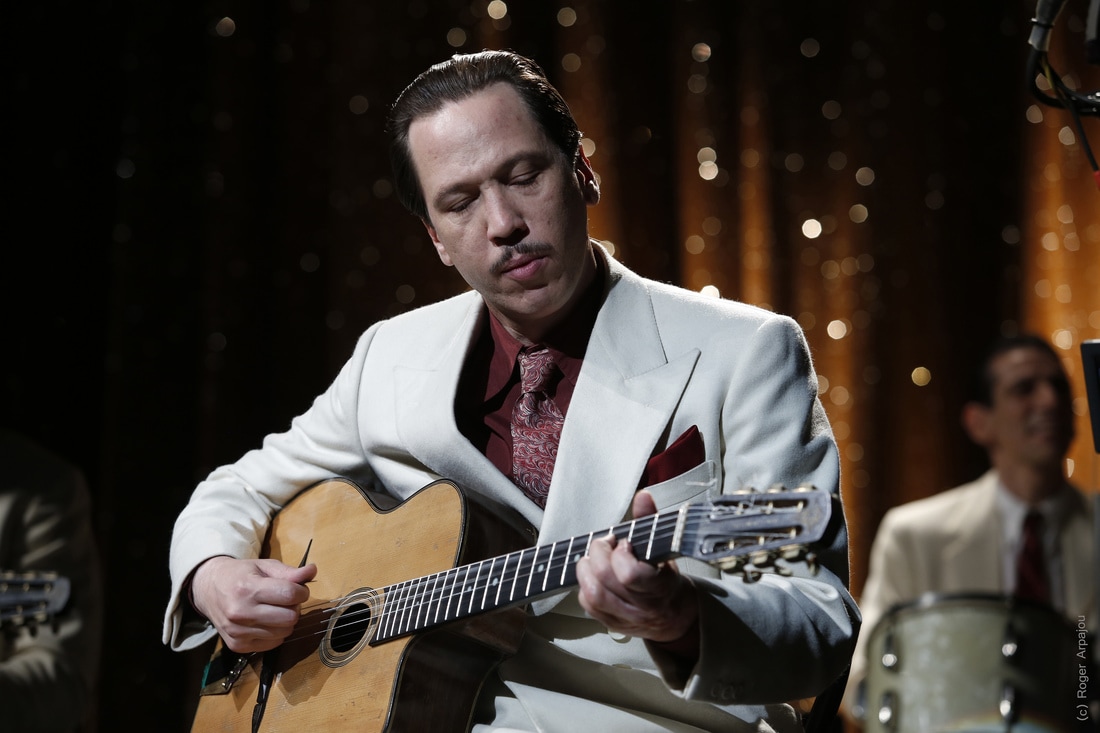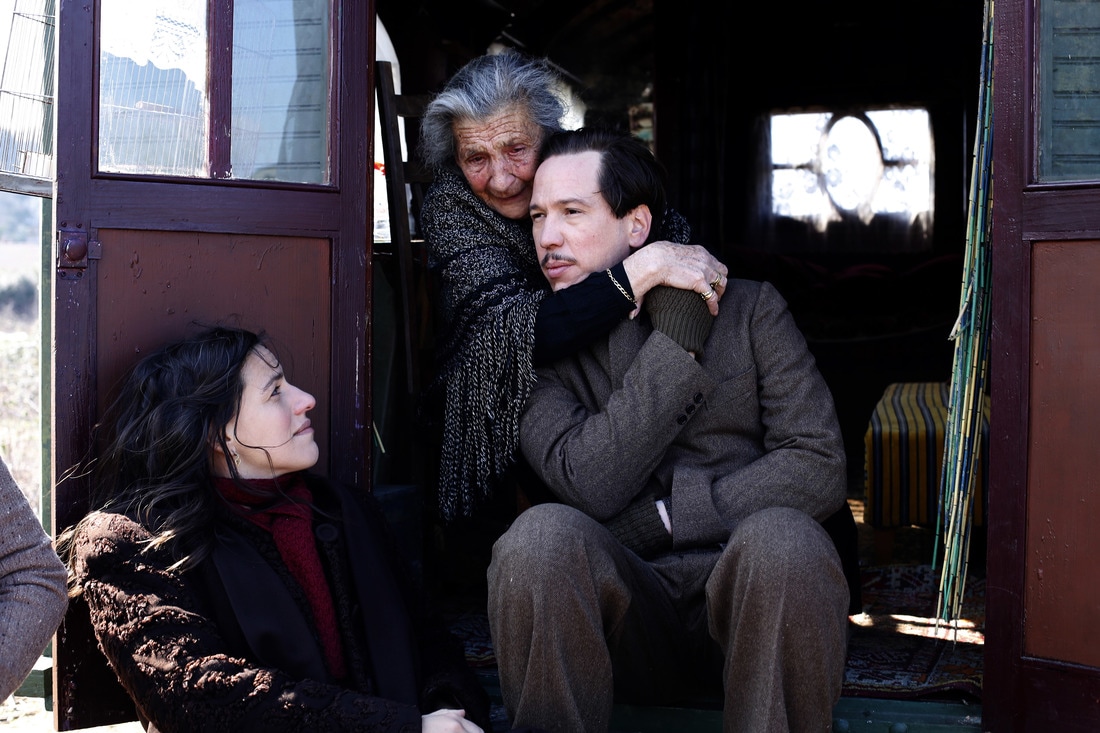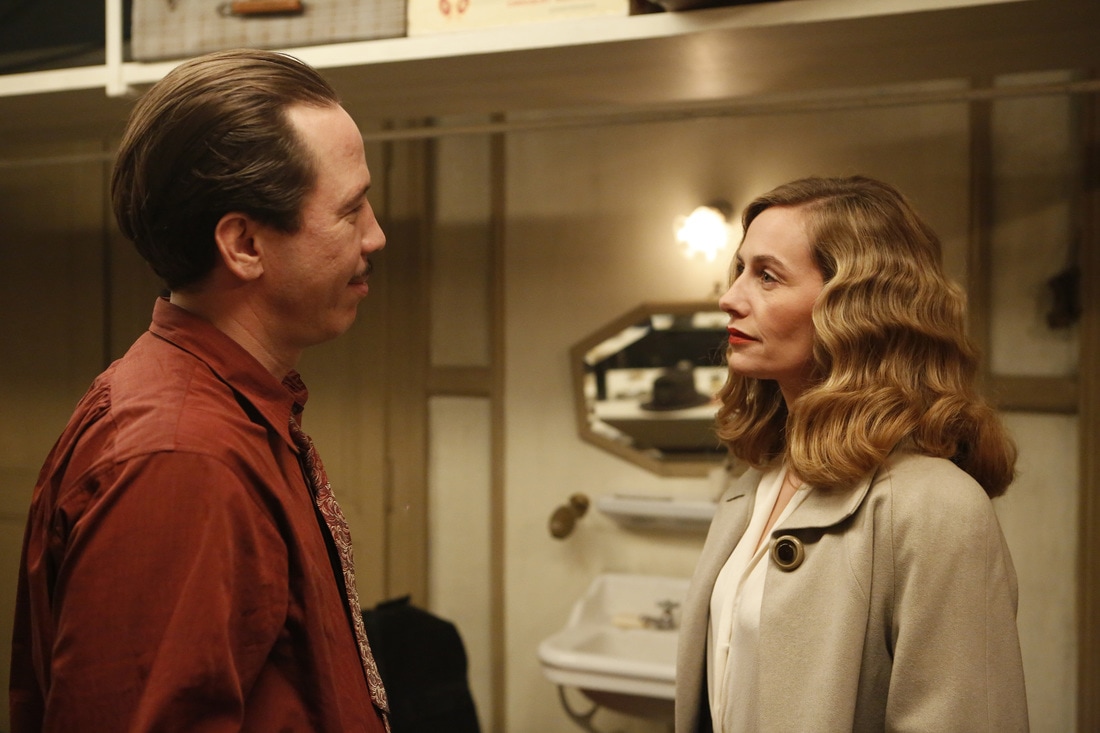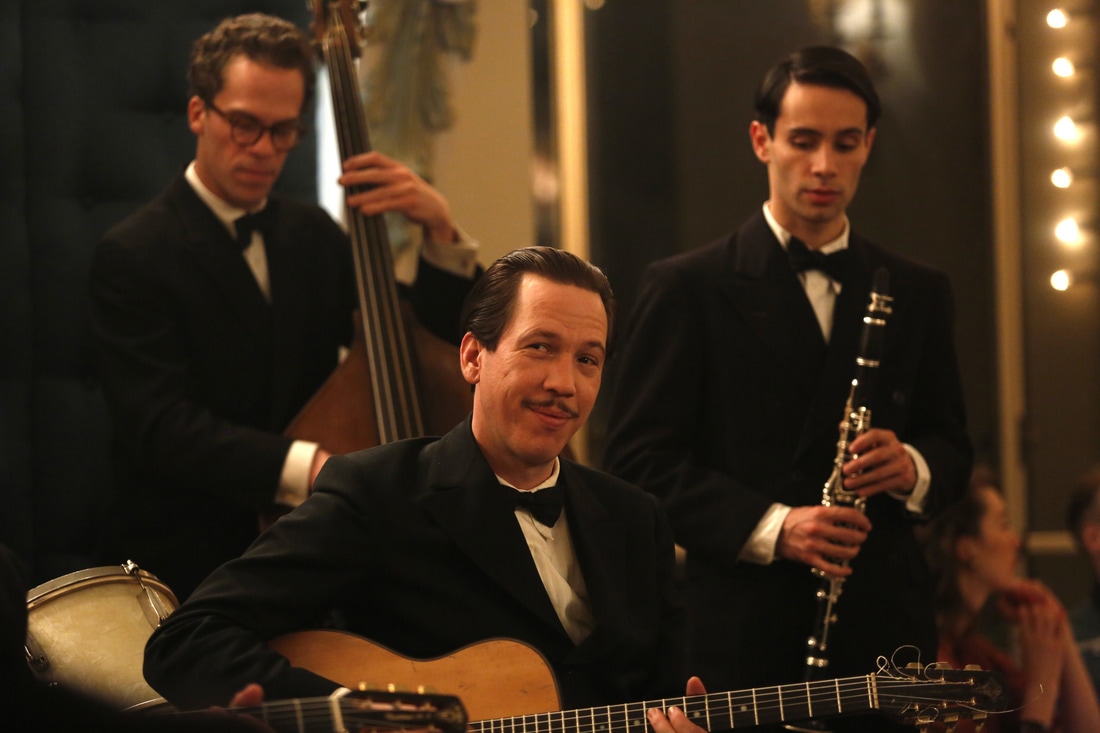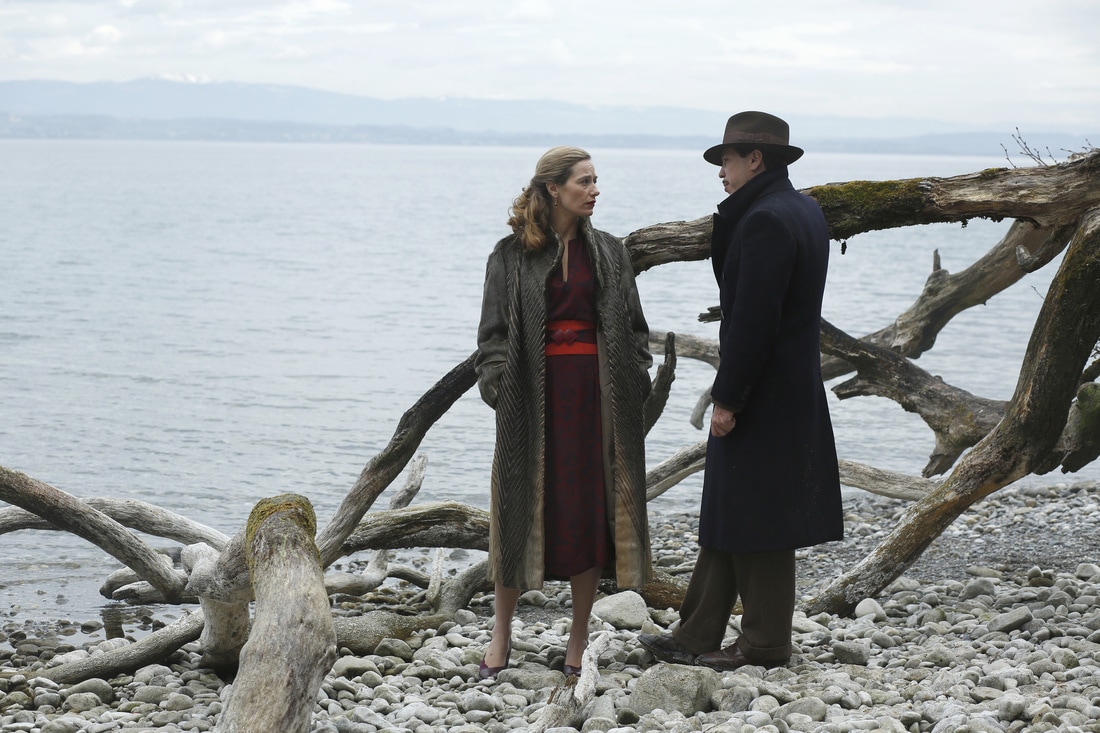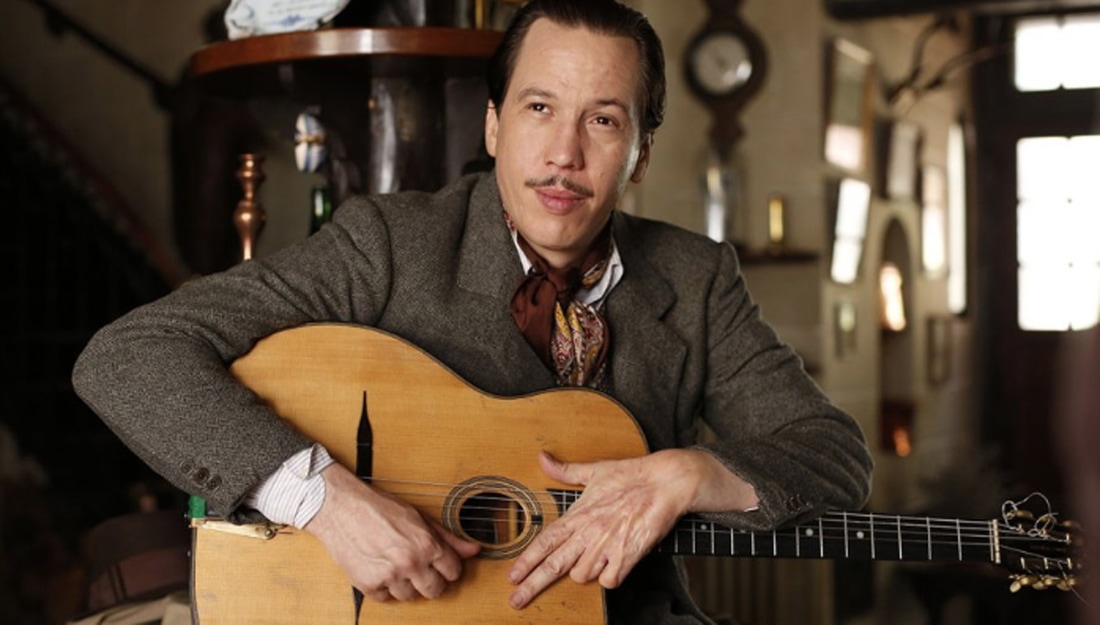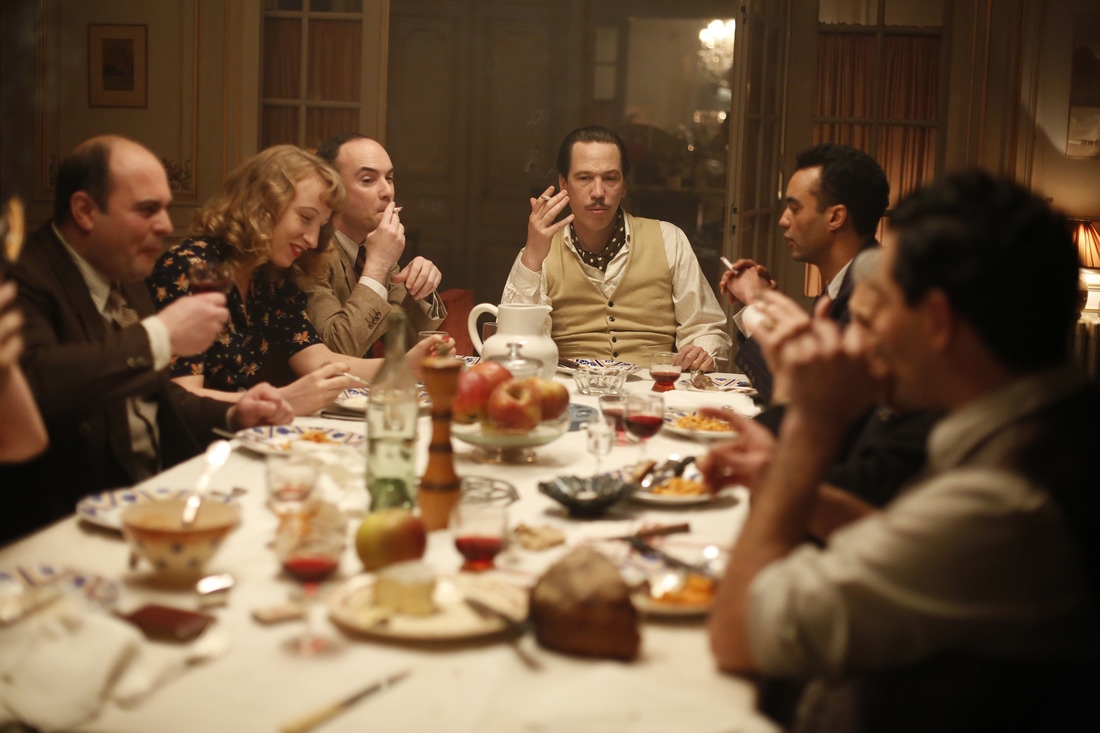|
★½☆☆☆
26 March 2017
A movie review of DJANGO. |
“Let’s go to the movies and dream a little,” Django Reinhardt (Reda Kateb)
If you're going to make a movie about a genius, don't just have other characters call him that, show us the audience why. AMADEUS this ain't. The gifted fascinates, as long as we know why they were so ahead of their time, and then marrying such explanation to an engaging character. Perpetually lauding Django Reinhardt over the 117 minute runtime is not enough. We too get little insight into his character. The usual petulance is present in another run of the mill biopic. The lead plays the guitar fast. And… Tell us more please.
If you're going to make a movie about a genius, don't just have other characters call him that, show us the audience why. AMADEUS this ain't. The gifted fascinates, as long as we know why they were so ahead of their time, and then marrying such explanation to an engaging character. Perpetually lauding Django Reinhardt over the 117 minute runtime is not enough. We too get little insight into his character. The usual petulance is present in another run of the mill biopic. The lead plays the guitar fast. And… Tell us more please.
Ideally a film, based on a real person, should satisfy both the aficionado and novice. As narrative features are not documentaries, hypotheses can be proffered as to character that the fan can reflect on. If on the other hand, an audience member is going in cold, a little context is not pandering. Contrast DJANGO with LOVE & MERCY.
Of course the Second World War must continually be discussed. It is a seismic humanitarian disaster. And with Trump and Brexit many people don't seem to be learning history’s lessons. 1943, occupied Paris, the Nazis want a reluctant Django to tour Germany. They don’t realise he is a gypsy. The film is primarily about him railing against the regime’s demands of him.
It is a shame DJANGO does not have the boldness of its visceral opening. In the Ardennes forest, Nazi soldiers gun down a gypsy community. Like GANGS OF WASSEYPUR the shooters are off camera, enhancing tension and shock. Nothing in the rest of the movie comes close to be as gripping. We then meet the protagonist drunkenly fishing by the Seine, late to perform a concert. Cliché alarm bells are already ringing. At least DJANGO is not as dire as I SAW THE LIGHT.
In case there was any doubt, for certain audience members, the Nazis are portrayed as grim, with one soldier calling France the army’s whorehouse. An interesting scene later has Hitler propaganda re-cut for comedy value, shown to an angry, rebellious group; perhaps a sly nod to modern-day supercuts? (Analogue did it first?)
Who is female lead Cecile de France's Louise de Klerk meant to be? Instead of adding alluring mystery, which seems to be her purpose, she randomly arrives to give cursory info and vanishes again. She even has that 1940s wavy, crinkly haircut so lazily depicting the age.
One of the sequences sinking the film is Django leaving his elderly mother and pregnant wife on a mountain while he escapes. If this is a negative commentary, fine, but it just seems like laughably rushed storytelling.
The pedestrian plot unfurls without holding the attention. There are only a few standout images. This is a lacklustre feature directorial debut from producer Etienne Comar.
Using these Google Adsense links help us keep Filmaluation free for all film and arts lovers.


